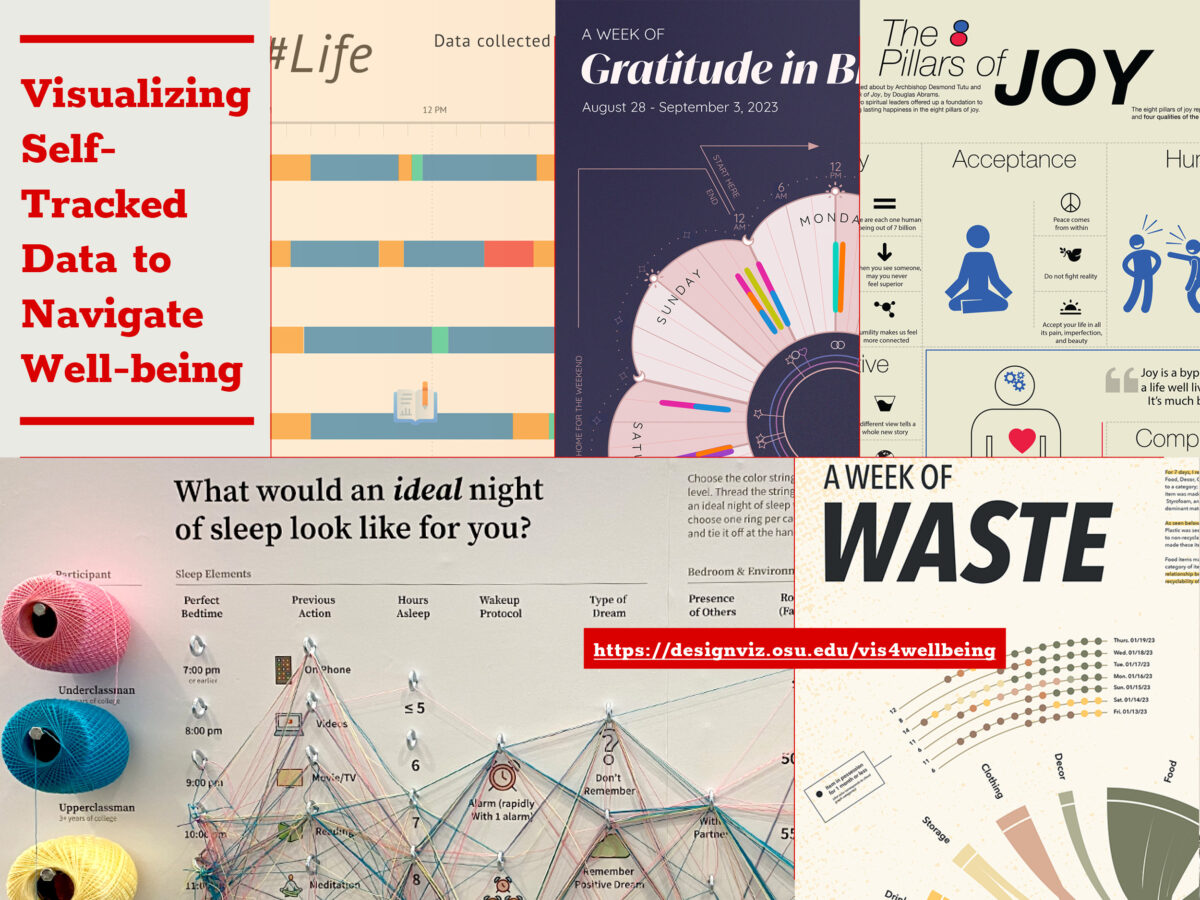Yvette Shen
Associate Professor
Ohio State University
As a visual communication design educator specializing in Information Design and Data Visualization, Shen views teaching as a collaborative journey of discovery with her students. The journey in education here goes beyond honing technical skills, venturing into an enlightening realm where learning outgrows traditional methods and tools.
Since 2018, students entering her classroom have embarked on this explorative process, grounded in Positive Psychology’s core concepts like gratitude, acts of kindness, goal-setting, and mindfulness. Through meticulously structured visualization projects that involve tracking and visually rendering their behavior and emotion over time, they not only learn design skills but also engage in profound self-reflection, leading to meaningful well-being insights. In these classes, students engage in the active self-tracking of their daily experiences, encompassing everything from emotional states and physical activities to altruistic behaviors and environmental interactions. This process, supported by a combination of manual logging and digital tools and rooted in Positive Psychology principles, yields a rich dataset. This data becomes a canvas for each participant to visualize and analyze, offering unique insights into students’ narratives.
This educational strategy bridges the practical application of data visualization with the theoretical constructs of Positive Psychology. During the COVID-19 pandemic, for instance, students’ self-tracked metrics evolved beyond mere numbers. Interpreted through Positive Psychology principles, these metrics narrated stories of resilience, coping, and the joy found in everyday interactions. Acts of kindness, when quantified and analyzed, transformed into powerful reflections of character strengths such as empathy and compassion. The synergy of data visualization with Positive Psychology equips students with a dual-lens: the self-tracking acts as a reflective mirror, while Positive Psychology offers interpretive tools to decipher these reflections. More than 180 students have engaged with this pedagogical model over the years, revealing that the alignment of daily actions with personal values fosters a sense of purpose. Moreover, the act of savoring positivity encourages students to cultivate an appreciative outlook on life.
Navigating through the data visualization process presents its challenges. Students must make coherent sense of raw data and determine the most impactful visual representations. Dissecting qualitative data to discern patterns and crafting personal stories from it remains a continuously evolving puzzle, demanding critical engagement and thoughtful interpretation. While the course centers on the foundational principles of information design—including the gathering, sorting, categorization, and analysis of information—the incorporation of Positive Psychology highlights a vibrant nexus between data visualization and personal well-being. Students not only master design intricacies but also witness the empowering effect of design on individual well-being. They emerge with enhanced data literacy, design thinking skills, and a strengthened culture of introspection and ongoing personal development.
This educational journey in Information Design and Data Visualization aims to transcend scholarly pursuit; it seeks to become a transformative experience that enriches student lives. It cultivates an appreciation for the storytelling power of data and deepens the significance of introspection in personal growth. The hope is that this approach to Information Design will exemplify how the meticulous art of visual communication, in synergy with human-centered design philosophy, can illuminate the path to holistic wellness and enlightened self-awareness.
This project was the 2023 Design Incubation Educators Awards runner-up recipient in the category of Teaching.
Yvette Shen is an Associate Professor in the Department of Design at the Ohio State University and the program coordinator in the area of Visual Communication Design. The focus of her current creative and research pursuits is centered on the field of information design and information visualization. Specifically, she is interested in exploring how design can facilitate a deeper understanding of complex information and foster increased interest in learning, as well as how visualization and user experience can promote positive behaviors and emotions. Yvette holds an M.F.A. degree in Visual Communication Design and a B.S. degree in Computer Science.
